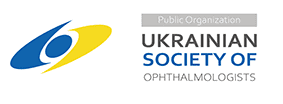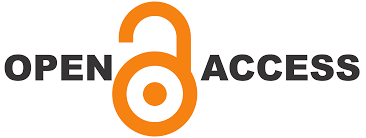CONFLICTS OF INTEREST/COMPETING INTERESTS
Disclosure of Financial and Non-Financial Relationships and Activities, and Conflicts of Interest
Public trust in the scientific process and the credibility of published articles depend in part on how transparently an author's relationships and activities, directly or topically related to a work, are handled during the planning, implementation, writing, peer review, editing, and publication of scientific work.
The potential for conflict of interest and bias exists when professional judgment concerning a primary interest (such as patients' welfare or the validity of research) may be influenced by a secondary interest (such as financial gain). Perceptions of conflict of interest are as important as actual conflicts of interest.
Readers must be able to make their own judgments regarding whether an author's relationships and activities are pertinent to a paper's content. These judgments require transparent disclosures. An author's complete disclosure demonstrates a commitment to transparency and helps to maintain trust in the scientific process.
Financial relationships (such as employment, consultancies, stock ownership or options, honoraria, patents, and paid expert testimony) are the most easily identifiable, the ones most often judged to represent potential conflicts of interest and thus the most likely to undermine the credibility of the journal, the authors, and science itself. Other interests may also represent or be perceived as conflicts, such as personal relationships or rivalries, academic competition, and intellectual beliefs.
Authors should avoid entering into agreements with study sponsors, both for-profit and nonprofit, that interfere with authors' access to all of the study’s data or that interfere with their ability to analyze and interpret the data and to prepare and publish manuscripts independently when and where they choose. Policies that dictate where authors may publish their work violate this principle of academic freedom.
All participants in the peer-review and publication process—not only authors but also peer reviewers, editors, and editorial board members of journals—must consider and disclose their relationships and activities when fulfilling their roles in the process of article review and publication.
Authors. When authors submit a manuscript of any type or format authors are responsible for disclosing all relationships and activities that might bias or be seen to bias their work. All authors should report their financial COI related to the research and written presentation of their work and any other relevant competing interests. Journal of Ophthalmology (Ukraine) publishes all conflicts of interest (or their absence) reported by authors that are relevant to the manuscript being considered. Purposeful failure to report those relationships or activities specified on the journal's disclosure form is a form of misconduct.
Reviewers. Reviewers are asked at the time they are asked to critique a manuscript if they have relationships or activities that could complicate their review. Reviewers must disclose to editors any relationships or activities that could bias their opinions of the manuscript, and should recuse themselves from reviewing specific manuscripts if the potential for bias exists. Reviewers must not use knowledge of the work they're reviewing before its publication to further their own interests. Journal of Ophthalmology (Ukraine) avoids reviewers from the same institution as the authors, unless the institution is so large that authors and reviewers are not working colleagues.
Editors and Journal Staff. Editors of Journal of Ophthalmology (Ukraine) who make final decisions about manuscripts recuse themselves from editorial decisions if they have relationships or activities that pose potential conflicts related to articles under consideration. Other editorial staff members who participate in editorial decisions provide editors with a current description of their relationships and activities (as they might relate to editorial judgments) and recuse themselves from any decisions in which an interest that poses a potential conflict exists. Editorial staff must not use information gained through working with manuscripts for private gain. When editors Journal of Ophthalmology (Ukraine) submit their own work to their journal, a colleague in the editorial office should manage the manuscript and the editor/author should recuse himself or herself from discussion and decisions about it.











